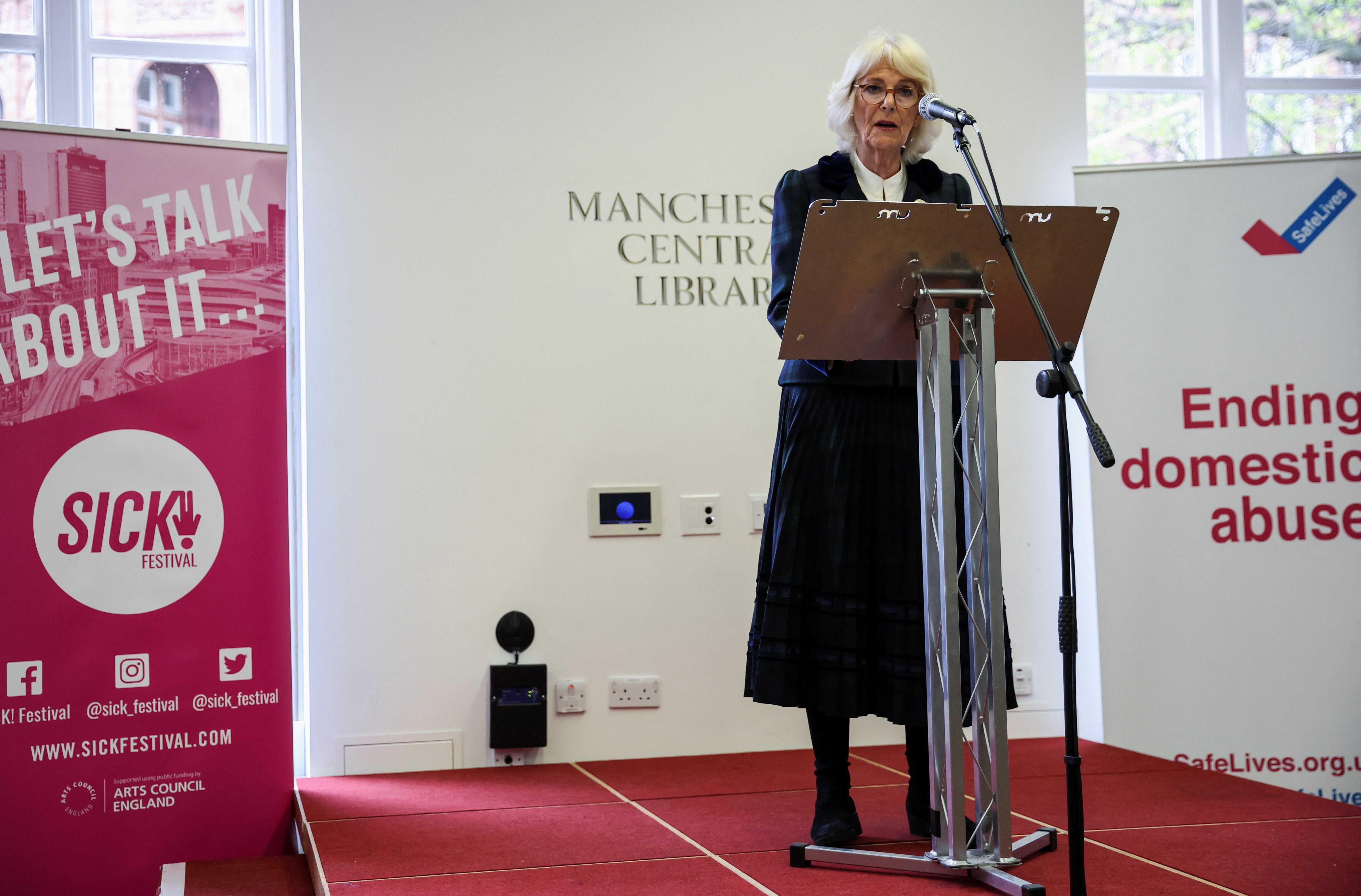Camilla hears ‘heartbreaking’ stories of domestic abuse at I Am exhibition
In a speech at Manchester Central Library, the duchess said: “The photographs are both incredibly moving and inspiring.”

Your support helps us to tell the story
From reproductive rights to climate change to Big Tech, The Independent is on the ground when the story is developing. Whether it's investigating the financials of Elon Musk's pro-Trump PAC or producing our latest documentary, 'The A Word', which shines a light on the American women fighting for reproductive rights, we know how important it is to parse out the facts from the messaging.
At such a critical moment in US history, we need reporters on the ground. Your donation allows us to keep sending journalists to speak to both sides of the story.
The Independent is trusted by Americans across the entire political spectrum. And unlike many other quality news outlets, we choose not to lock Americans out of our reporting and analysis with paywalls. We believe quality journalism should be available to everyone, paid for by those who can afford it.
Your support makes all the difference.The Duchess of Cornwall heard “heartbreaking” stories of domestic abuse from survivors as she viewed an exhibition of their portraits.
On Tuesday, Camilla met photographer Allie Crewe and the subjects of her I Am project – a series of portraits of domestic abuse survivors which will be on show in St Peter’s Square in Manchester and across the city’s Metrolink network as part of the SICK! Festival.
In a speech at Manchester Central Library, the duchess said: “The photographs are both incredibly moving and inspiring.
“Moving because of the depth of pain and loss that the survivors have endured at the hands of those who claimed to love them, and inspiring because these photographs show us how survivors can, and do, take back their own identity and their own stories, which have too often been eroded and taken from them by the abuse they have suffered.
“Part of the power of these photographs lies in the fact that the images are not of victims as we might have supposed but, in the words of one of them, ‘strong, feisty, brave survivors, changing the journey from victim to victor … making it smoother, shorter and never lonely’.”
Camilla said the stories she heard were “heartbreaking” but “not, by any means, unique”.
She added: “I am so honoured to launch this exhibition and I wish it – and all the survivors who are gathered here – every possible success as, together, we seek to end domestic abuse forever.”
The work was developed with UK charity SafeLives, which is dedicated to ending domestic abuse and has Camilla as a patron.
Among those whose portraits feature in the exhibition is Chief Inspector Sharon Baker, 43, a survivor of domestic abuse who works for Avon and Somerset Police.
She said: “This is shattering those stereotypes of who is affected by domestic abuse.
“This is a visual representation of how anyone can be affected, regardless of gender or demographic.”
SafeLives pioneer Shana Begum, 38, from St Helens, Merseyside, said she was “proud” to show the duchess her portrait.
She said: “I talked to her about what I do with my lived experience.
“What else can you do apart from use it to change the stigma?”
Ms Crewe, who experienced domestic abuse as a child, said the exhibition is the culmination of two years’ work.
She said: “It was really lovely showing the duchess the work.
“She’s clearly very knowledgeable about the subject and was very sincere.
“I don’t want to raise awareness with this exhibition; we have to use art as an agenda for change and we have to see action.
“What is the point of raising awareness? Things have to change.”
Suzanne Jacob, chief executive of SafeLives, said the work Camilla has done with the charity is “just phenomenal”.
She said: “The issue is really at the centre of her mind all the time; we see her raising it overseas and on other visits.
“We always say this can happen behind any front door, on any street, and we hope when people see the portraits there will be something which will touch them and connect with their life, so instead of thinking about this happening to ‘those people over there’ they will think about it happening to us as a society.”